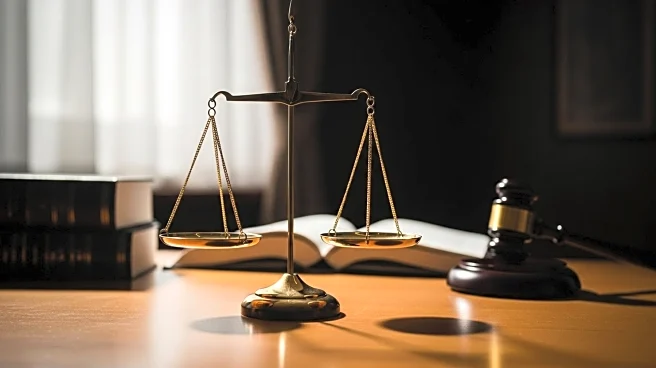What's Happening?
The Supreme Court has recently issued a decision that effectively nullifies the 4th Amendment's prohibition on suspicionless seizures by police. This decision, made in the case of Noem vs. Vasquez Perdomo, allows law enforcement to stop and seize individuals based on their appearance, job, or language spoken. Justice Sonia Sotomayor, along with Justices Elena Kagan and Ketanji Brown Jackson, dissented, expressing concern over the implications of this ruling. Justice Brett M. Kavanaugh's concurrence defended the use of race and ethnicity in policing decisions, despite the risks associated with such practices, including prolonged detention and wrongful deportation. The decision was issued on the Supreme Court's 'shadow docket,' leaving the justices' reasoning largely unknown.
Why It's Important?
This ruling has significant implications for policing practices in the United States, particularly affecting communities of color and immigrants. By removing the requirement for race-neutral suspicion, the decision potentially increases racial profiling and indiscriminate police actions. This could lead to more frequent stops and seizures, disproportionately impacting Latino communities and other minority groups. The decision also raises concerns about civil rights and the ability to challenge police actions through lawsuits, as recent Supreme Court decisions have limited such recourse. The erosion of 4th Amendment protections may contribute to a more militarized police state, undermining the constitutional rights of individuals based on race and ethnicity.
What's Next?
The decision may not be the final word on the matter, as legal challenges and public discourse could prompt further examination of the 4th Amendment's scope. Civil rights advocates and legal experts may seek to address the implications of this ruling through legislative or judicial avenues. The potential for increased racial profiling and police violence could lead to heightened scrutiny and calls for reform in policing practices. Stakeholders, including lawmakers and civil society groups, may push for measures to restore protections against racialized policing and ensure accountability for law enforcement actions.
Beyond the Headlines
The decision highlights broader ethical and legal concerns regarding racial profiling and the balance between security and civil liberties. It underscores the need for ongoing dialogue about the role of race in policing and the importance of safeguarding constitutional rights. The ruling may also influence public perception of the justice system and its commitment to equality and fairness. Long-term shifts in policing practices and community relations could emerge as a result of this decision, prompting discussions about the future of law enforcement in America.










